

|
The bayonet types for the rifle Mauser M1898, which are presented here are only the most common and main groups that the German bayonets can be divided into. I have chosen to divide the bayonets into four main groups:
|
The excellent and very rare SG42
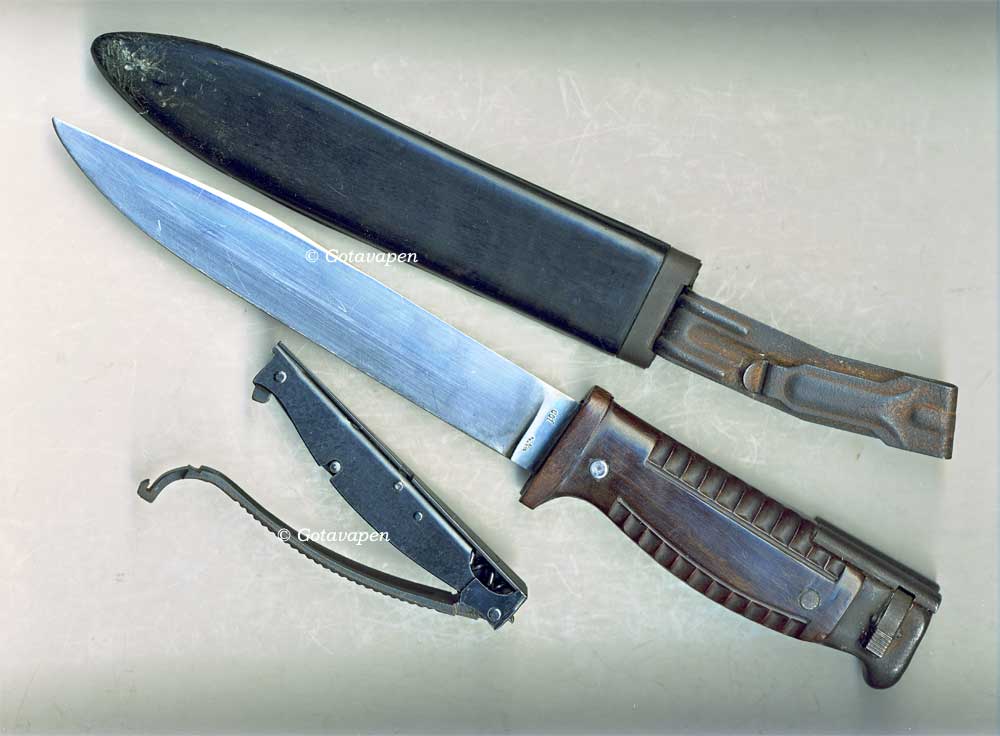
| Specifications | |
| Bayonet Length over all | 30 cm |
| Bayonet Length of blade | 18 cm |
| Bayonet Length with scabbard | 31,5cm |
| Length of tool | 11 cm |
| Blade wide | cm |
| Blade thickness | 0.4 cm |
| Weight complete | 487 gram |
| Weight of bayonet with tool | 361 gram |
| Weight scabbard | 126 gram |
| Weight of tool | 98 gram |

|
SG42 was intended
to replace SG84/98 as standard bayonet for K98 with a rather short blade This was an excellent bayonet complete with handle tool kit which is integral to the comfortable grip. This multi-functional tool in combination with a good grip and a good blade, made the SG42 to a good fighting knife and very good bayonet. This was an excellent bayonet complete with handle tool kit which is integral to the comfortable grip. Both scales and scabbard are made of backelite This multi-functional tool in combination with a good grip and a good blade, made the SG42 to a good fighting knife and very good bayonet. The ricasso was stamped with cof of Carl Eickhorn of Solingen and WaA519; SG42 was made of stampings and Backelite. It had a very smart tool inserted in the grip. The tool was marked ltk tells us that it was mad by Robert Klass
This is a very rare bayonet.
|
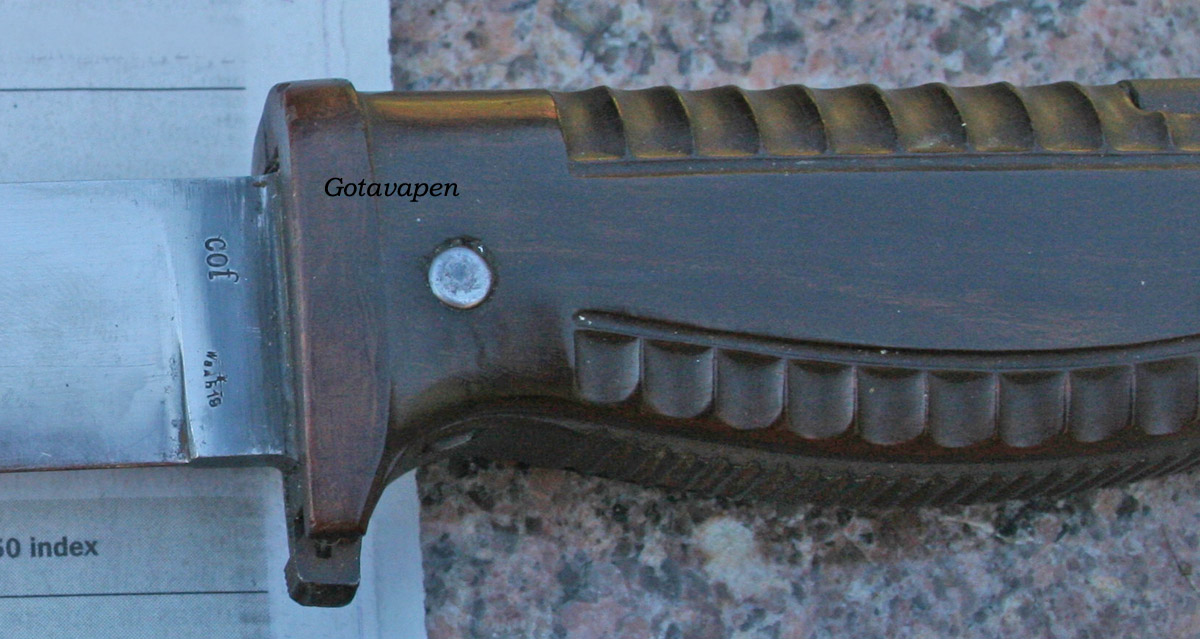
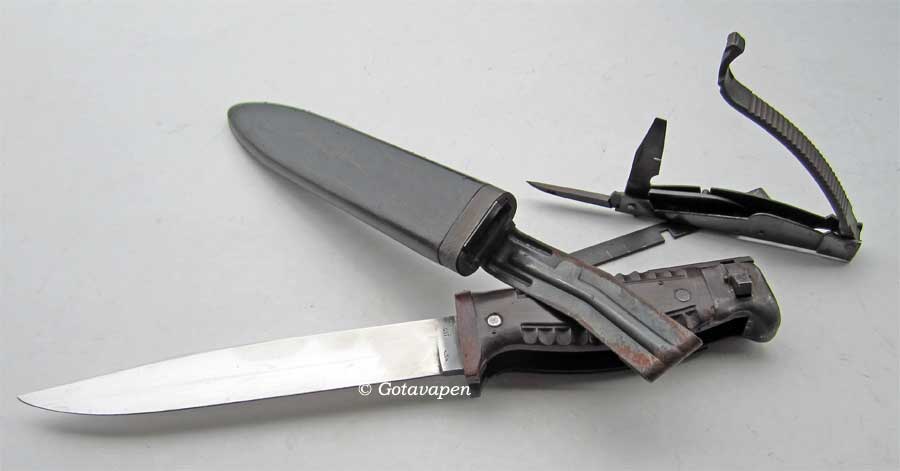
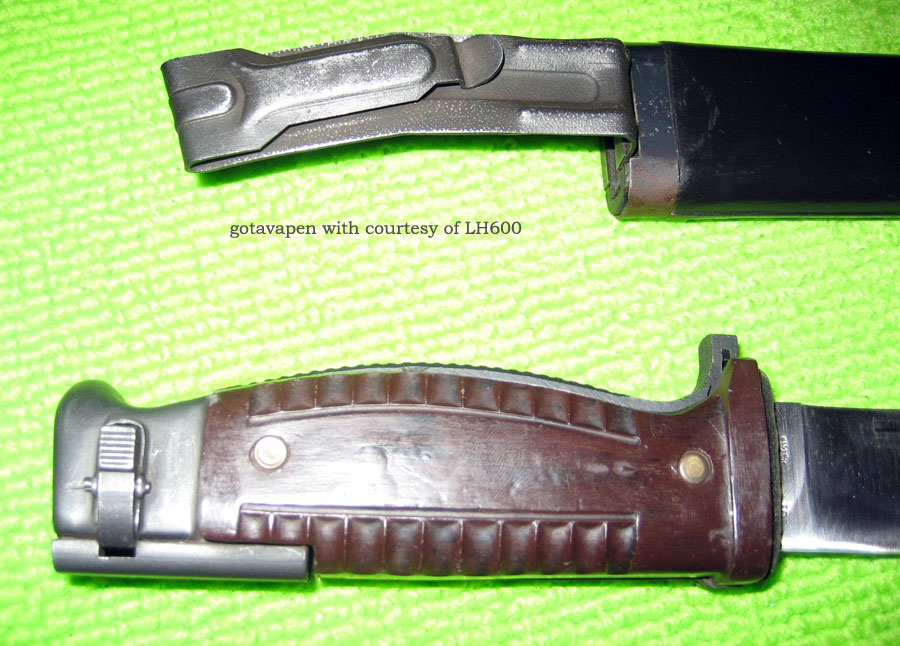
|
Post-war: After WW2 Sudan used this idea and got a similar SG42 bayonet delivered for AR-10.
|
|
Be aware - copies are very common
FAKES!
|
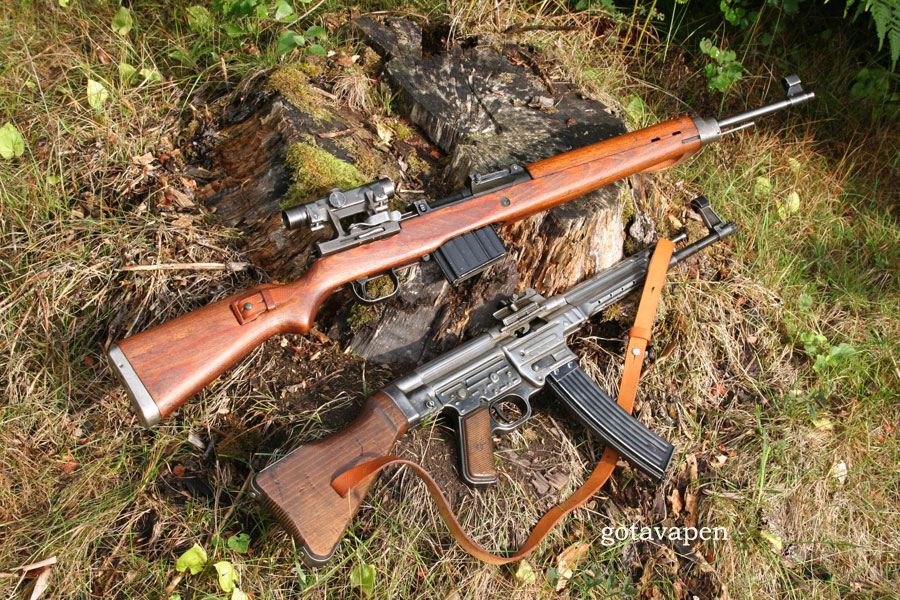
G43 and Sturmgewehr44 (MP44).
No more bayonets made in the 3rd Reich.
|
In mid-1944 the war-efforts were stretched to the utter most. The demand for steel was urgent. New weapons like G43 and MP44 (StG44) would not handle any bayonet. The carbine K98k was even issued without bayonet lug at the end of the war. The German high command had come to the conclusion (like Fairbairn & Sykes in UK) that the bayonet was outdated. The British army however, kept its traditions high and used the bayonet attack as an effective frightening assault. It is estimated that 15 millions bayonets of this type were made between 1933 and 1945. |
| 1 | |
| 2 | |
| 3 | |
| 4 | |
| 5 |
|
References: |
|
| Robin Lumsden | Edged Weapons of Hitlerís Germany |
| John Walther | German bayonet, 1871-1945 |
| George T. Wheeler | Seitengewehr: History of the German bayonet 1919-1945 |
| Fredrick J Stephens | Fighting knives |
| SVEVAP 1976 | Bayonets then and now. |